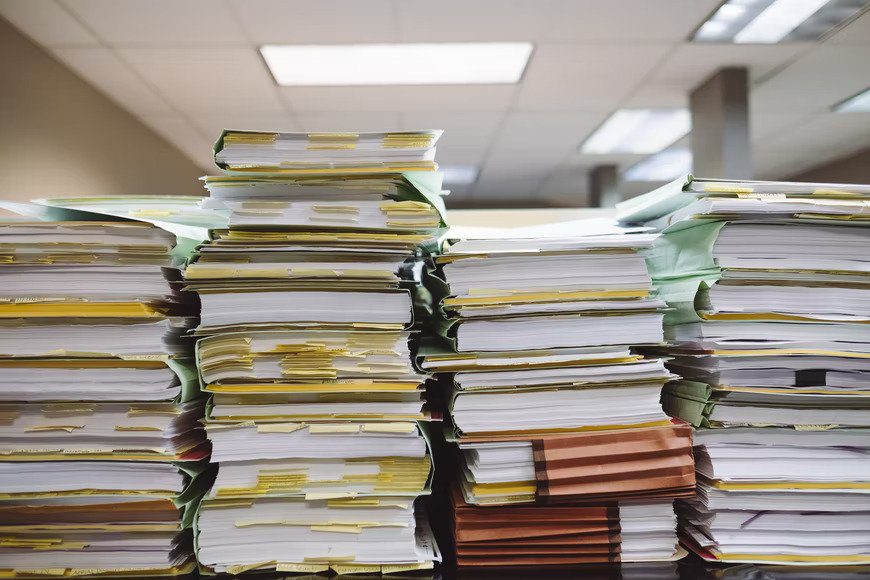The ATO requires small business owners to keep accurate records related to tax and superannuation. These laws apply to new businesses, current businesses, and businesses that have closed in the past several years.
The problem is that lots of small business owners aren’t familiar with ATO requirements. Recordkeeping errors aren’t uncommon and may lead to fines and other penalties.
This guide is designed to assist small business owners to understand and comply with ATO recordkeeping requirements. We’ll cover everything you need to know about accurate, thorough recordkeeping.
The ATO requires small business owners to keep accurate records related to tax and superannuation. These laws apply to new businesses, current businesses, and businesses that have closed in the past several years.
The problem is that many small business owners aren’t familiar with ATO requirements. Recordkeeping errors aren’t uncommon and may lead to fines and other penalties.
This guide is designed to assist small business owners to understand and comply with ATO recordkeeping requirements.
What is a record?
For ATO purposes, a record is any documentation that helps explain or prove small business transactions related to taxes and superannuation.
This includes:
- Income and expense documentation.
- Supporting documentation for your tax elections, choices, estimates, determinations, deductions, or calculations.
When it comes to recordkeeping, more information is almost always better. At a minimum, your documentation should include the following information:
- Date of the transaction
- Amount of the transaction
- Type of transaction
- Relevant GST information
- Purpose of the transaction
- Relationship between your business and the other party, if relevant for tax purposes.
Records can be anything that helps explain or prove your small business transactions. The ATO recommends keeping all records that relate to taxes and superannuation.
What are the benefits of accurate, complete recordkeeping?
Besides ATO compliance, adequate record keeping allows businesses to:
- Be more knowledgeable about their finances
- Track cash flow, payments, and receivables
- Provide documentation to lenders, other businesses, prospective buyers, and tax preparers
- Easily manage audit requests
- File and pay taxes and superannuation.
What types of records should you keep?
Your business structure and tax and superannuation requirements determine which types of records you need to keep.
ATO guidelines require that:
- Your records are unaltered and protectively stored so they’re not damaged or altered by outside elements.
- You keep records for a minimum of five years from the date of the transaction or the date you obtained the record (whichever is later).
- You can show the ATO the records whenever they ask for them.
- Your records are in English or may be easily converted into English upon request.
What’s the best record keeping format?
There are no specific ATO requirements regarding record format. You may use either digital records or paper records at your discretion. However, please note that we live in a digital world, and the ATO may require digital records in the future. There are also benefits to digital records:
- First, digital records are generally safer than paper records. You can easily store multiple copies of digital records, which helps protect them from fire and other disasters.
- Digital records are also more accessible. You can easily search for specific records with just a few keywords.
- Digital records take up less space. Paper records are bulky and require massive amounts of storage space.
If you keep digital records, you don’t need paper backups. We do recommend making digital copies of both paper and digital records, however. You need at least one backup (two is better), and one of your backups should be off-site.
If you prefer paper records, remember that you can scan paper records and store images on your hard drive or cloud storage option. The ATO accepts these scanned images as long as they’re clear and accurate reproductions of the originals.
The ATO outlines the following requirements for digital records and scanned images:
- You must have access to the computer or device and the records, including all the passwords you need to access the records.
- You have a backup.
- The storage option you choose gives you control of the records.
- You need full access and control of all information, whether it’s entered or sent.
The ATO doesn’t require any specific recordkeeping format. You may use either digital records or paper records, so choose your favourite option. The ATO may convert to digital records only in the future, though, which is something to consider. There are also benefits to digital records:
- First, digital records are generally safer than paper records. You can easily store multiple copies of digital records, which helps protect them from fire and other disasters.
- Digital records are also more accessible. You can easily search for specific records with just a few keywords.
- Digital records take up less space. Paper records are bulky and require massive amounts of storage space.
If you keep digital records, you don’t need paper backups. However, most business owners make digital copies of both paper and digital records. At least one backup is helpful, and two is better. Storing one of your backups off-site ensures you’ll always have a copy, even if there’s a fire or other type of loss.
If you prefer paper records, remember that you can scan paper records and store images on your hard drive or cloud storage option. The ATO accepts these scanned images as long as they’re clear and accurate reproductions of the originals.
The ATO outlines the following requirements for digital records and scanned images:
- You must have access to the computer or device and the records.
- This includes all the passwords you need to access the records.
- You need to have a backup.
- You need full access and control of all the record information.
How long should you keep records?
The ATO requires that small businesses keep records for a minimum of five years. Certain situations require you to keep records longer than five years. (Most of these situations involve capital gains tax.) The five year period starts when you prepare or obtain the record or complete the transaction—whichever is later.
Though the ATO only requires five years of records, it’s worth noting that the Australian Securities & Investments Commission requires seven years of records for companies.
The 5 Rules of Recordkeeping
The ATO helpfully provides a list of five rules for recordkeeping purposes. They are:
- Keep all tax and superannuation-related records for your business. This includes documentation from starting the business, daily business affairs, changing the business, and dissolving or closing the business. Make sure you separate business and personal use expenses.
- Your records must be unaltered. Storage methods must protect the records from damage. The ATO may request proof of the safeguards you have in place.
- Keep most of your records for at least five years. Keep FBT records five years from the day you lodged your FBT return. Keep super contribution records five years from the date of contribution. Keep super fund choice records five years from the date of employee engagement or the date the employee is offered, chooses, or changes their fund choice. For all other records, the five-year period starts the day you prepared or obtained the record or completed the transaction. Some situations require businesses to keep records longer than five years. You need to document your procedures for destroying digital records as well.
- If the ATO requests records, you should be able to provide the records immediately. If you use an encryption method, you need access to encryption keys and access to the data. The data should be available in a standard format such as Excel or CSV. If you use passwords, you need access to those passwords and the data they protect. When you store records, use labels and indexes so the data is easy to find.
- Document your recordkeeping processes so the ATO can ensure you meet the latest requirements.
- Your records should be in English. If they are in another language, you should be able to convert the records to English easily.
nexzen Helps Small Business Owners With ATO Compliance and Proper Recordkeeping Procedures
If you need additional guidance regarding ATO compliance and proper recordkeeping procedures, please let us know. nexZen helps small business owners run their businesses effectively, ensuring they stay compliant and on top of their financial documentation. Book a discovery call to talk to us about your business structure, tax and super obligations, and recordkeeping best practices.
We can help relieve your stress and provide the guidance you need. Please don’t hesitate to call.



